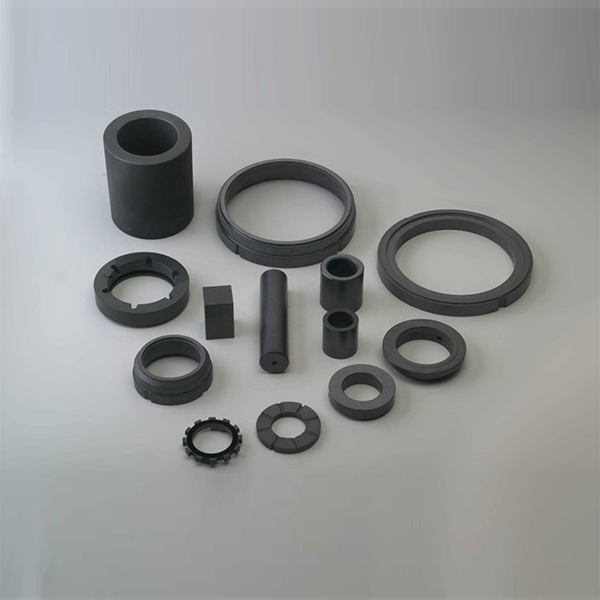
Carbon graphite is versatile and tailored for diverse wet to dry running applications. With a legacy of excellence, carbon graphite proves to be the ideal choice for various industries. Our offerings provide exceptional thermal shock resistance, superior thermal conductivity, unmatched natural lubricity, and reliable corrosion resistance.
WhyChoose Carbon Graphite?
- Versatility Across Applications: Whether in wet or dry running scenarios, carbon graphite material excels, showcasing adaptability across a spectrum of applications.
- Exceptional Thermal Shock Resistance: Carbon graphite stands strong against thermal shocks, ensuring reliability in demanding conditions.
- Superior Thermal Conductivity: Benefit from efficient heat dissipation, optimizing the performance of your systems.
- Natural Lubricity: Experience excellent natural lubricity, reducing friction and wear for prolonged component life.
- Reliable Corrosion Resistance: Carbon graphite offers good corrosion resistance, making it suitable for a wide range of challenging environments.
Explore Junty’s Mechanical Carbon Grades:
- Resin-Bonded Carbon:
Cost-Effective Excellence: Tailored to meet large-volume needs, our resin-bonded carbon is a cost-effective solution sized to order.
- Resin-Impregnated Carbon with Fillers:
Reduced Porosity: Furan resin, phenolic resin, or epoxy resin fillers enhance our resin-impregnated carbon, minimizing porosity for optimal performance.
- Metal-Impregnated Carbon:
High-Temperature Solutions: For elevated working temperatures and enhanced strength requirements, our metal-impregnated carbon, featuring antimony, copper, or Babbitt alloys, is the ideal choice.
Tailored Solutions for Varied Service Conditions:
- Junty’s commitment to innovation and versatility shines through in our range of mechanical carbon grades. Whether you require cost-effectiveness, reduced porosity, or high-temperature performance, Junty has the right carbon graphite grade for your specific needs.
Experience the Junty Advantage:
- Decades of Expertise: With a legacy of excellence, Junty brings decades of expertise to deliver top-notch carbon graphite solutions.
- Cutting-Edge Innovation: Our materials are crafted with cutting-edge technology to meet and surpass industry standards.
- Customization: Tailor-made solutions to match your unique application requirements.
Choose Junty for carbon graphite excellence—where versatility meets reliability. Elevate your application’s performance by contacting us today.
| Parameter | Unit | J1118F | J2163K | J2163D |
| Density | g/cm3 | 1.70 | 1.82 | 2.3-2.5 |
| Impregnation | – | Phenolic Resin | Furan Resin | Antimony |
| Hardness | – | HS 85 | HS 90 | HS95 |
| Compressive Strength | Mpa | 210 | 220 | 260 |
| psi | 30,000 | 31,800 | 37,700 | |
| Flexural Strength | Mpa | 65 | 75 | 95 |
| psi | 9,500 | 10,100 | 13,800 | |
| Porosity | % | 1.0-2.0 | 1.0-2.0 | 2.5 |
| Coefficient of Thermal Expansion |
1×10-6/K | 5 | 5.5 | 6 |
| Maximum Working Temperature | ºC | 200 | 200 | 400 |
| ºF | 400 | 400 | 750 |

